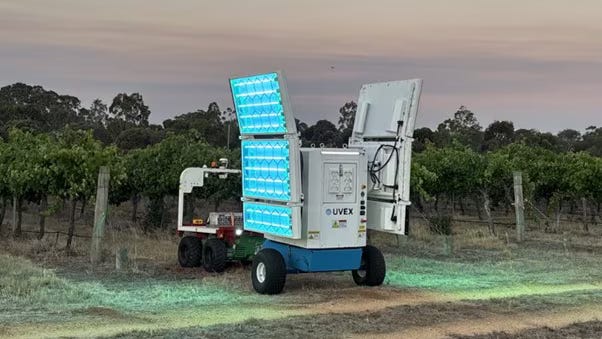What's Emerging mid-June 2025
A newsletter on interesting stuff that is emerging around the world so you can think about strategy.
Welcome to our newsletter for mid-June 2025.
In the next few weeks Paul will continue to work on the strategy implementation consultation process with RSL Victoria, and work with a sport association on their planning. He will also be assisting Blue Light Victoria on their strategy and working with the Shrine of Remembrance on reviewing their strategic plan. He will also continue in his role of Chair with venture philanthropy organisation Social Venture Partners Melbourne. This includes launching a new low bono consulting model for the not-for-profit sector which will provide low cost/high value consulting services with all the money generated going to Social Venture Partners Melbourne to continue their pro bono and grant work in the sector. You can see the details HERE although it is not publicly launched yet. Please get in touch if you think we can help you or point us to tenders you think might be in our wheelhouse.
If you are interested in talking to us about any of our strategy approaches, foresight approaches, workshops, or conference presentations, please Contact Us.
The Emergent Futures Team
In case you missed it. The most popular link from the last edition was :
Can you cut your neighbour's overhanging trees? Here are the rules
Here are the rules for Australia……….Read More
What are we Writing About?
Paul has written a short piece on LinkedIn - A Lesson in the Preposterous…..Read More
What’s Emerging
How ‘Coffees’ Made With Chickpeas and Barley Compare
Alternative coffee producers say blends made with ingredients like mushrooms and chickpeas will gain market share as regular bean supplies become scarcer and more expensive due to climate change........…..Read More
Waymo now has a quarter of the rideshare market in San Francisco, nearly half of Uber's volume
.….….Read more
China’s scientists use tellurium to restore vision in mice, let monkeys see infrared
The rare element, tellurium, mimics how photoreceptor cells function in a healthy retina work, converting infrared light into electrical signals which the brain can interpret as images...…..Read More
BYD to roll out 15,000 megawatt EV chargers across China
The large deployment comes less than three months since BYD originally revealed its ‘Super e-Platform’ for new EVs, allowing for models based on this platform to receive charging speeds of up to 1,000kW from a megawatt charger – allowing around 400 kilometres worth of range to be added in just five minutes................…..Read More
Grape growers trial disease-fighting robots as wine industry struggles with rising costs
Wine grape growers grappling with declining sales and rising expenses hope advancements in autonomous technology can help to safeguard the industry.......……. Read More
Inside Ukraine’s Fiber-Optic Drone War
A Ukrainian commander gives us new details on the advantages and limitations of using fiber optic cables to control FPV attack drones......…..Read more
Nissan Leaf EV batteries find second life as battery storage at Rome Airport
Nissan Energy has assisted Aeroporti di Roma Fiumicino with a new second-life battery storage system composing of repurposed Nissan Leaf batteries, as the airport works towards its own net-zero goals. Using 84 end-of-life Nissan Leaf EV batteries, the reconditioned batteries will be used to supply 2.1MWh worth of energy storage to Enel’s large-scale Battery Energy Storage System (BESS) at the airport....……. Read More
Explainer: How human-caused aerosols are ‘masking’ global warming
Human-caused emissions of aerosols – tiny, light‑scattering particles produced mainly by burning fossil fuels – have long acted as an invisible brake on global warming.......…..Read more
Unbelievable Discoveries About Tardigrades
Paul: The natural world can often surprise us or give us new ideas and these little guys are amazing.
Public support for CRISPR gene edited food surges in the UK
The recent survey, conducted by British Sugar, found that Gen Zs are leading the call for gene editing to be used, with a staggering 80% supporting the technology. All age groups viewed sustainability as the leading motivator, with 44% citing green credentials as a key reason for backing gene editing. By improving crop efficiency, reducing water and fertiliser use, gene editing not only promotes sustainable farming practices but also cuts emissions.....…..Read more
Building a Sustainable Forest Ecosystem in the Upper Reaches of the Yangtze River
The program was implemented in 35 counties in Sichuan Province, starting in May 2020. A variety of approaches were adopted to improve forest quality and management, including afforestation and reforestation, diversified species planting, natural forest regeneration, landscape protection, forest tending with supplementary planting, rehabilitation of degraded forests, and assisted natural regeneration. These efforts aimed to build a high-quality and sustainable forest ecosystem......…..Read more
New gene-editing therapy shows early success in fighting advanced GI cancers
Researchers at the University of Minnesota have completed a first-in-human clinical trial testing a CRISPR/Cas9 gene-editing technique to help the immune system fight advanced gastrointestinal (GI) cancers. The results, recently published in Lancet Oncology, show encouraging signs of safety and potential effectiveness of the treatment......…..Read more
Business and Other Tips
Choice report finds popular Australian sunscreens fail to meet SPF claims on label
Consumer group Choice tested 20 sunscreens and found only four provided the SPF protection their label claimed. The brands dispute the findings and say their own testing shows their sunscreens meet or exceed their SPF claims…….Read More
That Cup of Coffee May Have a Longer-Term Perk
A new study of over 47,000 women found links between coffee drinking and healthy aging……….Read More
Regularly Giving Blood Could Benefit Your Own Health, Too
Giving blood regularly may not just be saving the lives of other people, it could also be improving your own blood's health at a genetic level, according to a new study.An international team of researchers compared samples from 217 men who had given blood more than 100 times in their lives, to samples from 212 men who had donated less than 10 times, to look for any variance in blood health..………..Read More






